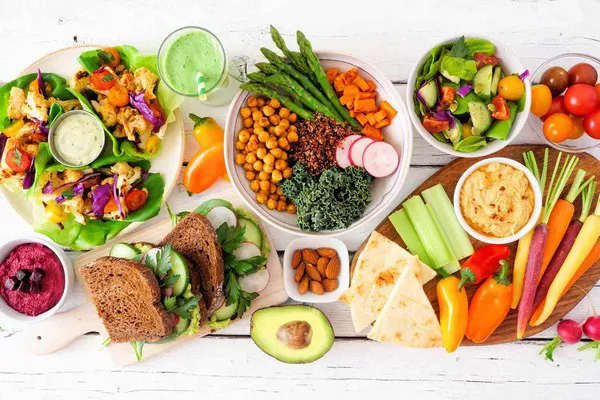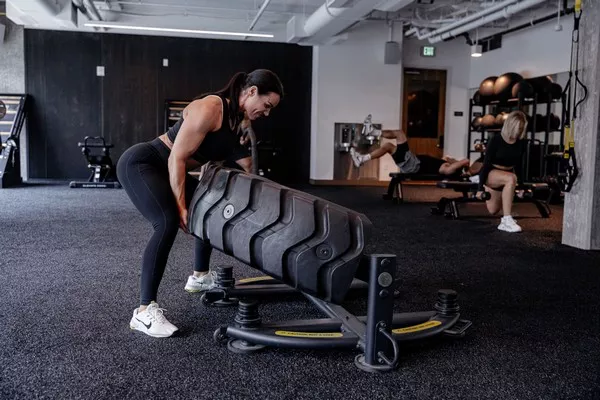As women transition into their senior years, maintaining optimal health becomes increasingly vital. Adequate nutrition plays a significant role in ensuring a vibrant and active lifestyle. Vitamins, essential micronutrients that support various bodily functions, become even more critical during this phase of life. In this comprehensive guide, we delve into the key vitamins that women over 60 should consider incorporating into their daily routines for overall well-being and other tips for a better aging life.
1. Vitamin D: The Sunshine Vitamin
Vitamin D, often referred to as the “sunshine vitamin,” plays a pivotal role in maintaining bone health. It aids in the absorption of calcium and promotes bone mineralization, reducing the risk of fractures and osteoporosis. With age, the body’s ability to synthesize vitamin D from sunlight diminishes, making dietary sources and supplements more important. Fatty fish, fortified dairy products, and safe sun exposure are excellent ways to maintain optimal vitamin D levels.
2. Vitamin B12: Nervous System Support
Vitamin B12 is crucial for maintaining a healthy nervous system and supporting cognitive function. As individuals age, the ability to absorb vitamin B12 from food sources may decrease, leading to potential deficiencies. Including fortified cereals, lean meats, and dairy products in the diet can help meet the recommended intake of vitamin B12.
SEE ALSO: What is B12 Vitamins: A Complete Overview
3. Calcium: Preserving Bone Density
Maintaining strong bones is a priority for women over 60. Calcium is essential for bone health and muscle function. Post-menopause, the risk of osteoporosis increases, making it vital to consume adequate amounts of calcium. Dairy products, leafy greens, and fortified plant-based milk are valuable sources of this mineral.
4. Magnesium: Heart and Muscle Health
Magnesium supports heart health, muscle function, and energy production. It also aids in regulating blood pressure and maintaining steady heart rhythm. Including nuts, seeds, whole grains, and green leafy vegetables in the diet can help ensure sufficient magnesium intake.
5. Vitamin C: Immune System Boost
Vitamin C is renowned for its immune-boosting properties and its role in collagen synthesis, which promotes healthy skin and wound healing. As women age, maintaining a strong immune system becomes crucial. Citrus fruits, bell peppers, strawberries, and broccoli are rich sources of vitamin C.
SEE ALSO: 10 Popular Fruits High in Vitamin C, Your Optimal Health Choices
6. Vitamin A: Vision and Skin Health
Vitamin A is essential for maintaining good vision and healthy skin. It also plays a role in immune function and cell growth. Incorporating orange and yellow fruits, leafy greens, and eggs into the diet can provide a sufficient intake of vitamin A.
SEE ALSO: 8 Essential Vitamins Good for Skin Health
7. Omega-3 Fatty Acids: Brain and Heart Health
Omega-3 fatty acids are renowned for their anti-inflammatory properties, which support brain and heart health. They also contribute to healthy skin and joints. Fatty fish like salmon and mackerel, flaxseeds, and walnuts are excellent sources of omega-3s.
8. Vitamin E: Antioxidant Protection
Vitamin E is a powerful antioxidant that helps protect cells from oxidative damage. It also supports immune function and skin health. Nuts, seeds, and vegetable oils are rich in vitamin E and can be included in the daily diet.
SEE ALSO: Antioxidant Vitamins: Importance & Benefits
9. Folate (Vitamin B9): Cognitive Function and Mood Regulation
Folate is vital for cognitive function, mood regulation, and the production of DNA and RNA. Adequate folate intake is especially important for older adults, as deficiencies can contribute to cognitive decline. Leafy greens, legumes, and fortified grains are good sources of folate.
10. Iron: Energy and Vitality
Iron is crucial for energy production and preventing anemia. While the body’s iron requirements decrease with age, it’s still important to ensure a balanced intake. Lean meats, poultry, fish, and plant-based sources like lentils and fortified cereals can help meet iron needs.
11. Vitamin K: Bone and Blood Health
Vitamin K plays a significant role in bone health and blood clotting. It helps ensure proper bone mineralization and supports cardiovascular health. Leafy greens, broccoli, and fermented foods contain vitamin K and should be included in the diet.
12. Zinc: Immune Function and Skin Health
Zinc is essential for immune function, wound healing, and maintaining healthy skin. It also supports sensory functions such as taste and smell. Nuts, seeds, whole grains, and lean meats are good sources of zinc.
13. Hydration: The Overlooked Nutritional Element
Staying adequately hydrated is often overlooked but is crucial for maintaining overall health, especially for older adults. Water supports digestion, circulation, temperature regulation, and joint lubrication. It’s essential to drink water regularly and consume hydrating foods like fruits and vegetables.
Consulting a Healthcare Professional
While the information provided offers valuable insights into the vitamins that women over 60 should consider, individual nutritional needs can vary based on factors such as health status, medications, and specific dietary preferences. Consulting a healthcare professional or registered dietitian is advisable before making significant changes to one’s diet or supplement regimen.
Lifestyle Tips for Optimal Health in Women Over 60
While vitamins and proper nutrition are vital components of maintaining health for women over 60, adopting a holistic approach to overall well-being can significantly enhance the quality of life during this phase. Here are some additional lifestyle tips to consider:
1. Regular Physical Activity
Engaging in regular exercise is essential for maintaining muscle strength, bone density, and cardiovascular health. Activities such as walking, swimming, yoga, and strength training can contribute to improved mobility and flexibility.
2. Balanced Diet
Alongside taking the appropriate vitamins, aim for a well-rounded diet rich in whole grains, lean proteins, fruits, vegetables, and healthy fats. This variety ensures a wide range of nutrients for optimal health.
3. Portion Control
As metabolism naturally slows down with age, portion control is essential to prevent overeating and weight gain. Focus on mindful eating and listening to your body’s hunger cues.
4. Stress Management
Chronic stress can negatively impact health. Engage in relaxation techniques such as meditation, deep breathing, or hobbies that bring joy and relaxation.
5. Social Connections
Maintaining social interactions and relationships can contribute to mental and emotional well-being. Stay connected with friends, family, and community groups to combat feelings of isolation.
6. Regular Health Screenings
Schedule regular check-ups with healthcare professionals for preventive screenings, vaccinations, and assessments of vital health parameters such as blood pressure, cholesterol levels, and bone density.
7. Adequate Sleep
Quality sleep is crucial for overall health. Aim for 7-9 hours of uninterrupted sleep each night to support cognitive function, mood, and physical health.
8. Brain Health Activities
Engage in activities that stimulate the mind, such as puzzles, reading, learning a new skill, or playing musical instruments. These activities help maintain cognitive function and mental sharpness.
9. Sun Protection
While sunlight is important for vitamin D synthesis, protect your skin from excessive sun exposure to prevent skin damage and reduce the risk of skin cancer. Use sunscreen and wear protective clothing.
10. Limit Alcohol and Tobacco
If you consume alcohol, do so in moderation. Avoid smoking and limit exposure to secondhand smoke, as they can contribute to various health issues.
11. Stay Hydrated
Adequate hydration supports digestion, circulation, and temperature regulation. Drink water throughout the day and consider incorporating hydrating foods like soups and fruits into your diet.
12. Mindfulness and Gratitude
Practice mindfulness and gratitude exercises to cultivate a positive outlook on life. Engaging in activities that bring joy and purpose can contribute to emotional well-being.
13. Flexibility and Adaptability
Embrace change and be open to trying new things. Maintaining a flexible attitude helps navigate the challenges that come with aging.
14. Prescription Medication Management
If you’re taking prescription medications, ensure you follow your healthcare provider’s instructions diligently. Keep track of medications, their interactions, and any potential side effects.
15. Stay Informed
Stay up-to-date on health-related information, advancements in medical research, and lifestyle trends that promote healthy aging.
Conclusion
As women enter their senior years, prioritizing proper nutrition becomes essential for maintaining vitality and overall well-being. Vitamins and minerals play a crucial role in supporting various bodily functions, from bone health and immunity to cognitive function and heart health. By incorporating a diverse range of nutrient-rich foods and, if necessary, appropriate supplements, women over 60 can ensure that they are providing their bodies with the essential elements needed to thrive during this phase of life. As women transition into their senior years, Adopting a holistic approach to health is also paramount. By combining proper nutrition, appropriate vitamin intake, regular physical activity, and a positive lifestyle, women over 60 can enjoy an active, fulfilling, and vibrant life.
[inline_related_posts title=”Related Topics” title_align=”left” style=”list” number=”3″ align=”none” ids=”1363,1228,1199″ by=”categories” orderby=”rand” order=”DESC” hide_thumb=”no” thumb_right=”no” views=”no” date=”yes” grid_columns=”1″ post_type=”” tax=””]

































